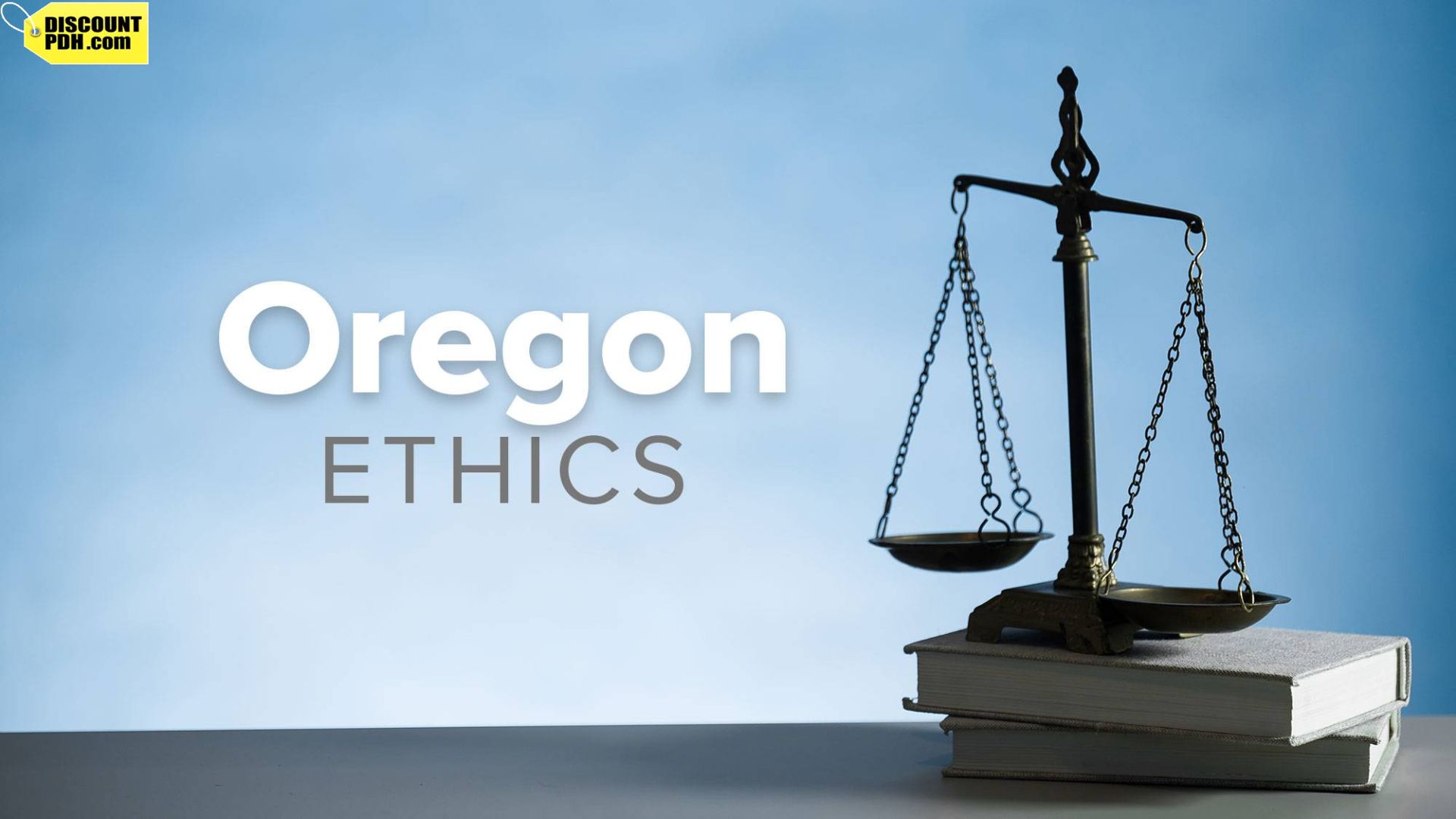Introduction
In today’s engineering world, technical expertise is only one part of professional success. Ethical responsibility and adherence to state-specific laws are equally important. The Oregon ethics rules and laws for engineers ensure that licensed engineers uphold the highest standards of integrity, public safety, and professional accountability.
As part of license renewal, engineers must complete engineering continuing education courses, including ethics. For multi-state license holders, completing courses on Alaska Ethics rules and laws for engineers and other state-specific requirements is also essential. This blog explores Oregon’s ethics requirements, their importance, and how professional engineering PDH courses help engineers remain compliant while growing their expertise.
Why Ethics Matter in Engineering
Engineering decisions affect infrastructure, public health, safety, and the environment. Without ethical guidelines, engineers risk compromising quality and safety. The Oregon ethics rules and laws for engineers emphasize:
-
Protecting the public welfare.
-
Practicing honesty and fairness in all professional dealings.
-
Avoiding conflicts of interest.
-
Complying with state laws and engineering standards.
By adhering to these rules, engineers strengthen their professional reputation and ensure they meet licensing board expectations.
Oregon Ethics Requirements for Engineers
The Oregon State Board of Examiners for Engineering and Land Surveying (OSBEELS) requires engineers to meet continuing education standards, including ethics training.
Key points include:
-
Completing a set number of PDH credits every renewal cycle.
-
Ensuring at least one PDH is in Oregon ethics rules and laws for engineers.
-
Maintaining accurate records of completed courses for potential audits.
These requirements align Oregon with other states like Alaska, where the Alaska Ethics rules and laws for engineers are also mandatory for license renewal.
Engineering Continuing Education Courses
Ethics training is part of a broader system of engineering continuing education courses designed to keep professionals updated.
Topics may include:
-
Technical training in civil, structural, or mechanical engineering.
-
Ethics and professional responsibility, focusing on state-specific rules.
-
Emerging technologies and safety standards.
By combining ethics with technical subjects, engineers gain a well-rounded education that benefits both their careers and the public.
Professional Engineering PDH Courses
Professional engineering PDH courses cover a wide range of subjects, but ethics is always a priority. These courses help engineers:
-
Stay compliant with state laws like the Oregon ethics rules and laws for engineers.
-
Earn the necessary PDH credits for renewal.
-
Understand how ethics differ across jurisdictions, such as Oregon vs. Alaska Ethics rules and laws for engineers.
-
Learn from real-world case studies of ethical dilemmas in engineering.
Popular providers like pdhonline and other platforms offer tailored courses for state-specific ethics and broader engineering topics.
Understanding PDH Credits
PDH credits (Professional Development Hours) are the measurement units for continuing education. In Oregon, engineers must earn a specific number of PDHs, including at least one in ethics.
-
1 PDH = 1 hour of approved training.
-
Ethics PDHs may come from courses, seminars, or online platforms like pdhonline.
-
Unused PDHs may sometimes be carried over to the next renewal cycle, depending on board rules.
By completing ethics-focused courses, engineers ensure they satisfy both Oregon and multi-state requirements.
Comparison: Oregon vs. Alaska Ethics Rules
Engineers licensed in multiple states must comply with each jurisdiction’s standards. While the Oregon ethics rules and laws for engineers emphasize honesty, fairness, and state-specific legal compliance, the Alaska Ethics rules and laws for engineers focus strongly on environmental responsibility and protecting natural resources.
Key differences:
-
Oregon – Focuses on state-specific engineering regulations and professional accountability.
-
Alaska – Highlights sustainability and environmental ethics due to its unique natural landscape.
By completing ethics courses for both states, engineers ensure compliance and demonstrate their versatility as professionals.
Role of PDHonline and Other Providers
Platforms like pdhonline are widely recognized for offering state-approved courses. Benefits of using such platforms include:
-
Access to engineering continuing education courses anytime, anywhere.
-
State-specific ethics modules such as the Oregon ethics rules and laws for engineers.
-
Easy tracking of earned PDH credits.
-
Courses in technical, safety, and ethics areas tailored to engineers’ needs.
Whether you’re a pdh engineer renewing a single-state license or managing multiple states, online platforms make compliance easier.
Benefits of Oregon Ethics Courses
Completing Oregon ethics rules and laws for engineers courses provides engineers with multiple advantages:
-
Regulatory Compliance – Meets OSBEELS requirements for license renewal.
-
Enhanced Professional Integrity – Builds trust with employers, clients, and the public.
-
Multi-State Flexibility – Supports engineers licensed in Oregon, Alaska, and beyond.
-
Career Growth – Enhances credibility and professional reputation.
-
Convenience – Available through providers like pdhonline for flexible learning.
Tips for Engineers Completing Ethics Courses
-
Plan Ahead – Don’t wait until the renewal deadline. Spread out your PDH credits throughout the year.
-
Choose State-Approved Providers – Ensure your course covers the Oregon ethics rules and laws for engineers specifically.
-
Balance Learning – Combine ethics with technical professional engineering PDH courses for career development.
-
Maintain Records – Keep certificates from pdhonline or other providers for at least four years.
-
Stay Updated – Ethics standards may evolve, so check regularly for updated course requirements.
Conclusion
The Oregon ethics rules and laws for engineers ensure that licensed professionals uphold public trust, practice responsibly, and comply with state regulations. Ethics is more than just a license requirement—it is the foundation of engineering practice.
By completing engineering continuing education courses, including professional engineering PDH courses, engineers earn the necessary PDH credits while strengthening their professional skills. Platforms like pdhonline make it easy for every pdh engineer to access state-specific content, whether focusing on Oregon, Alaska, or multi-state compliance.
Ethics in engineering is not optional—it’s essential. With the right courses, engineers can protect public safety, stay compliant, and advance their careers with confidence.

